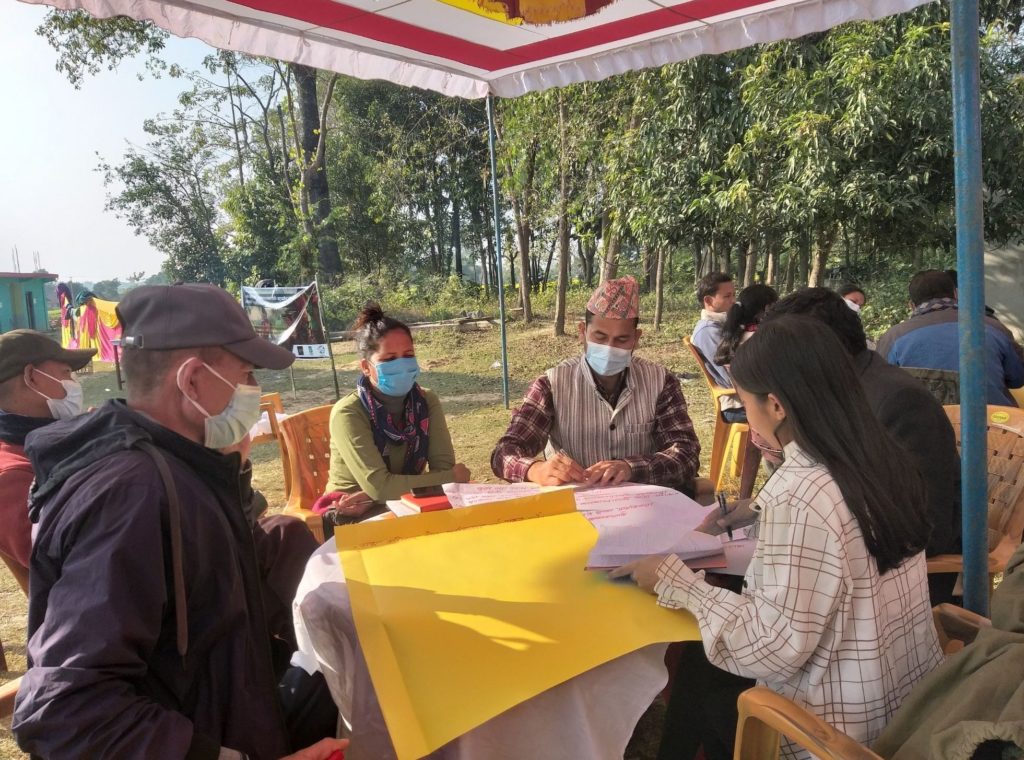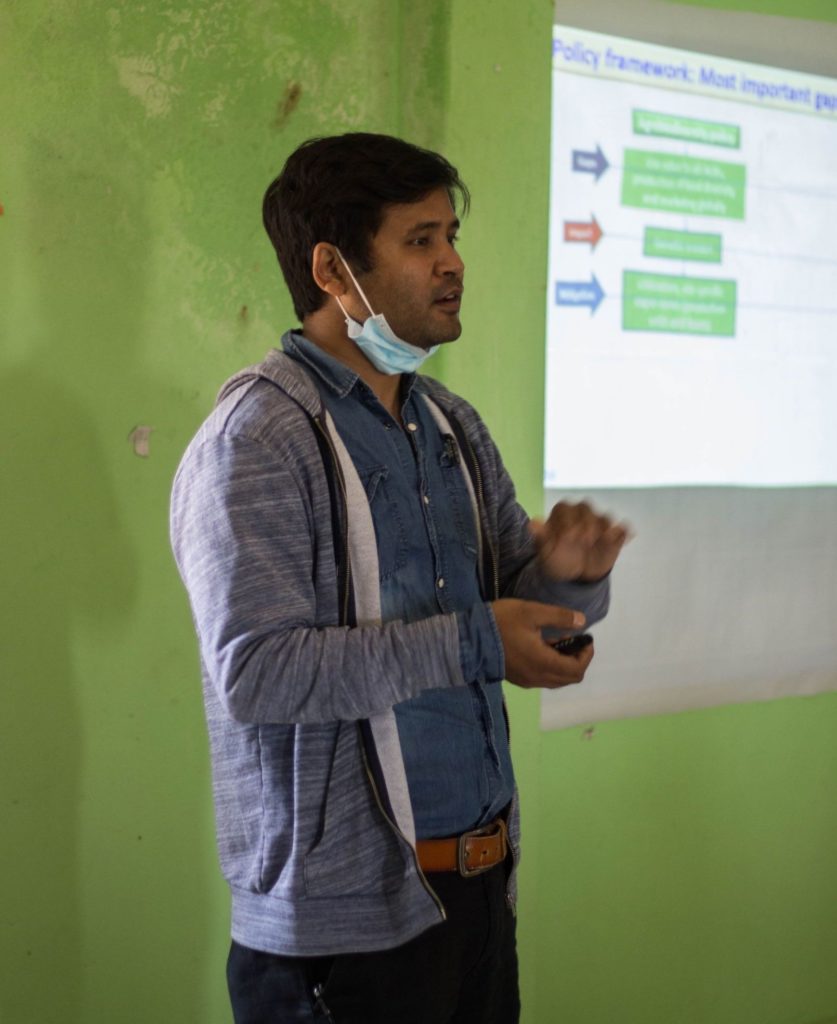SIANI’s Expert Group in Nepal together with partners organized a dialogue on food system transformation in December, gathering 63 participants from diverse stakeholder groups. Here is the main discussion from the event, looking both back to the current status of Nepalese food systems as well as into the future of food system transformation.
Local Initiatives for Biodiversity, Research and Development (LI-BIRD) in collaboration with Nepal Food Network and Alliance of Agriculture for Food – Sudurpashchim Province Chapter, jointly organized a provincial food system dialogue on 10 December 2021 in Dhangadhi, Nepal. The main objective of the workshop was to provoke and initiate multi-stakeholder discussion for creating synergies among the stakeholders for collaborative actions for building a sustainable food system in the province.
The workshop was organized in a local setting highlighting the traditional culture and cuisines of the indigenous Tharu community. The program was able to deliver the context and challenges of the existing food system and brought all stakeholders in a wider discussion for possible contributions and efforts each stakeholder required to bring collective transformation.



